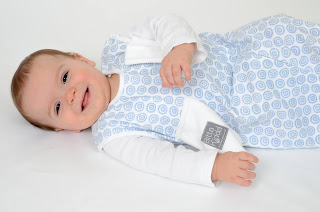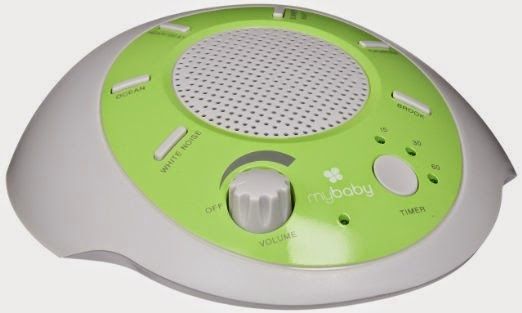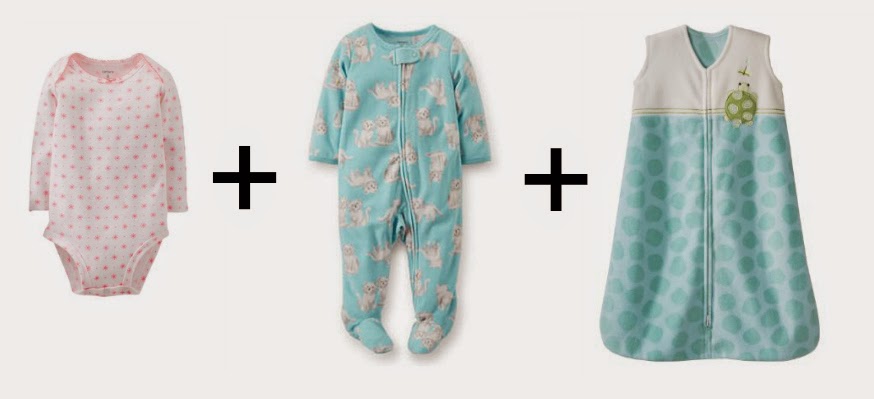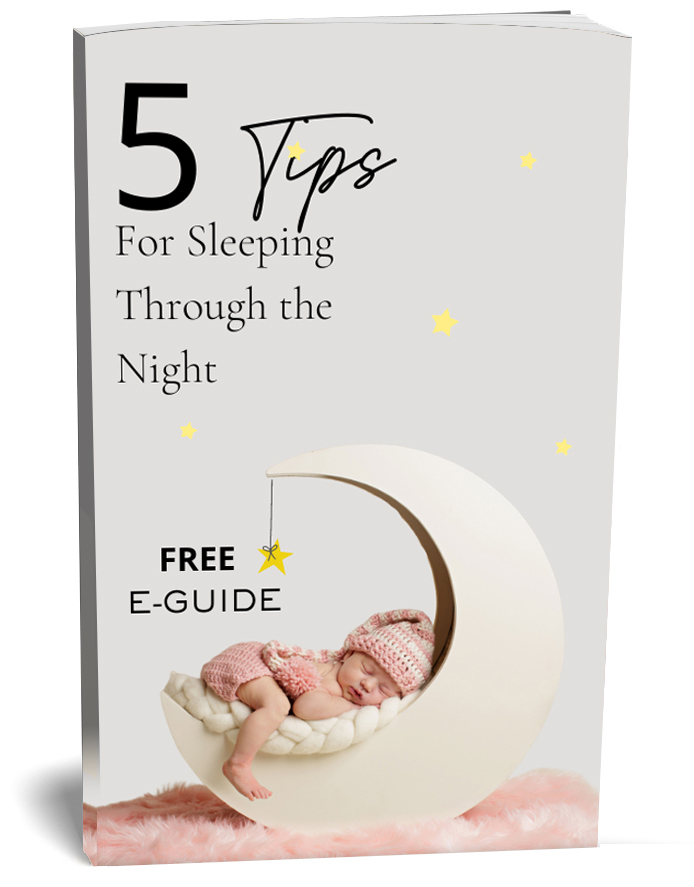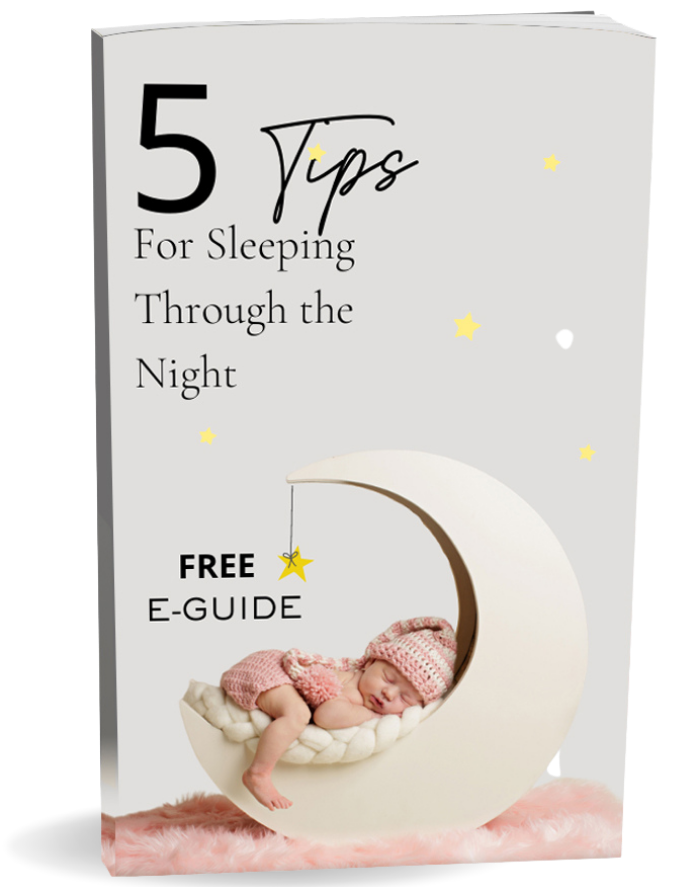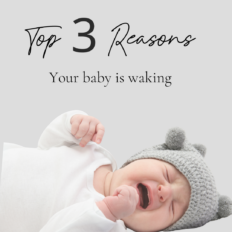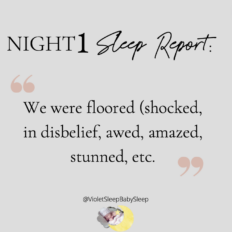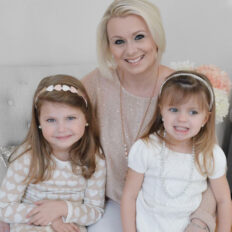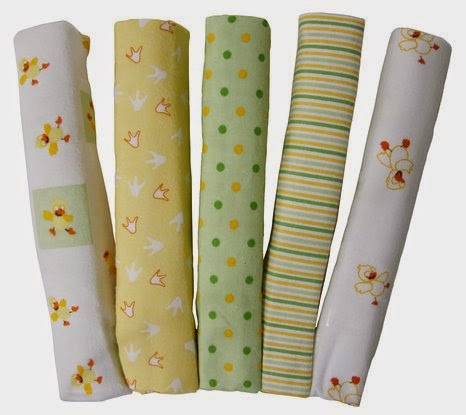 |
| This article contains affiliate links, but don’t worry I only recommend products I absolutely love! |
This is a pretty neat trick I learned from the hospital nursery. This is what they do right after a baby is born to help them feel secure. It’s most appropriate for really young babies, that just need help sleeping somewhere other than on top of mommy during the first few weeks of life. This is a great trick to use when baby won’t sleep unless held. What you basically do is take a receiving blanket, and roll it up the long way, and place one on each side of your baby. This helps your baby feel like she’s being held, and helps her feel nice and snug. The roll should be placed along side of your baby, armpit level down. You obviously don’t want it anywhere near your baby’s face and if you are worried about SIDS, then use the rolls during the day and remove them when you are ready to go to sleep. This also not appropriate for babies that are very mobile.
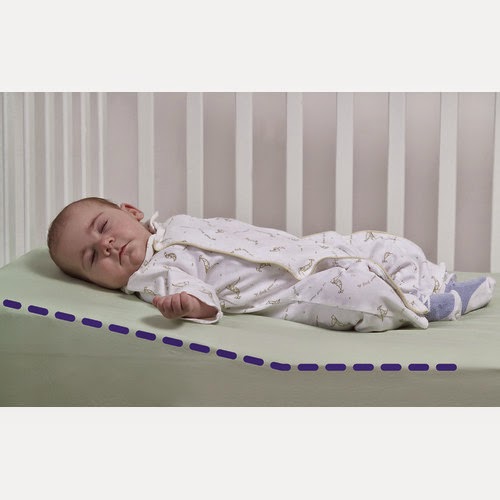 This is another trick I learned from the hospital nursery. All of their bassinets are slightly elevated and this really helps a baby sleep better. Think about it, our baby didn’t sleep flat in the womb, so there’s no way she’s going to sleep flat in her crib or bassinet. To help with this you can slightly elevate her bassinet, crib, or co-sleeper. This trick can be used for young babies, or even older babies that are going to be sleeping in the crib for the first time. Sometimes that slight elevation, makes all the difference. You can buy a Dex Baby Crib Wedge, or use books under the crib legs to give a more “natural” elevation. With the arms reach co-sleeper you can simply take off one set of legs.
This is another trick I learned from the hospital nursery. All of their bassinets are slightly elevated and this really helps a baby sleep better. Think about it, our baby didn’t sleep flat in the womb, so there’s no way she’s going to sleep flat in her crib or bassinet. To help with this you can slightly elevate her bassinet, crib, or co-sleeper. This trick can be used for young babies, or even older babies that are going to be sleeping in the crib for the first time. Sometimes that slight elevation, makes all the difference. You can buy a Dex Baby Crib Wedge, or use books under the crib legs to give a more “natural” elevation. With the arms reach co-sleeper you can simply take off one set of legs. This is a great way to get baby to sleep in the crib. Fill up a water bottle with warm water and put it in your baby’s crib where she will be sleeping. Then slip it out right before you lay your baby down. This will make the crib warm and cozy for her and will help her settle a little bit better than laying down on cold sheets.
This is a great way to get baby to sleep in the crib. Fill up a water bottle with warm water and put it in your baby’s crib where she will be sleeping. Then slip it out right before you lay your baby down. This will make the crib warm and cozy for her and will help her settle a little bit better than laying down on cold sheets. Sleep sacks are a huge help during crib transition. They help take away that feeling of being in a big open space, which is usually the reason a baby “hates” his crib. The more snug or narrow sleep sacks are better for younger babies, because they feel more secure and give that feeling of being held. The Carter’s sleep sack pictured on the right is great for that. The Halo, is usually too loose in the legs. Save your Halo for when your baby gets better at sleeping in the crib. For the initial crib transition, try something more snug and along the lines of the Carter’s Sleep Sack. The cozy material helps with soothing too.
Sleep sacks are a huge help during crib transition. They help take away that feeling of being in a big open space, which is usually the reason a baby “hates” his crib. The more snug or narrow sleep sacks are better for younger babies, because they feel more secure and give that feeling of being held. The Carter’s sleep sack pictured on the right is great for that. The Halo, is usually too loose in the legs. Save your Halo for when your baby gets better at sleeping in the crib. For the initial crib transition, try something more snug and along the lines of the Carter’s Sleep Sack. The cozy material helps with soothing too.
“Lovey”
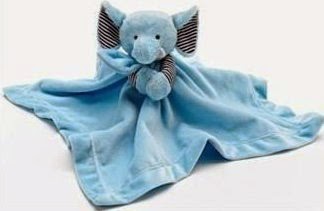 A lovey also known as a security item is all that your baby may need to transition to the crib. Having that lovey or buddy to cuddle with, is very important to help your baby feel secure and to help him create a good sleep association. A “lovey” can be anything, a small blanket, or receiving blanket square, mommy’s t-shirt, a bib (some babies love the tag), the list is endless. It’s basically anything that your baby finds comfort in. Since lovies should not be left in your baby’s crib for safety reasons another great option is the LovieSack. It’s a sleep sack with a lovey attached. Genius right? Take a look at the Bitta Kidda Company that makes them here–> http://www.bittakidda.com
A lovey also known as a security item is all that your baby may need to transition to the crib. Having that lovey or buddy to cuddle with, is very important to help your baby feel secure and to help him create a good sleep association. A “lovey” can be anything, a small blanket, or receiving blanket square, mommy’s t-shirt, a bib (some babies love the tag), the list is endless. It’s basically anything that your baby finds comfort in. Since lovies should not be left in your baby’s crib for safety reasons another great option is the LovieSack. It’s a sleep sack with a lovey attached. Genius right? Take a look at the Bitta Kidda Company that makes them here–> http://www.bittakidda.com
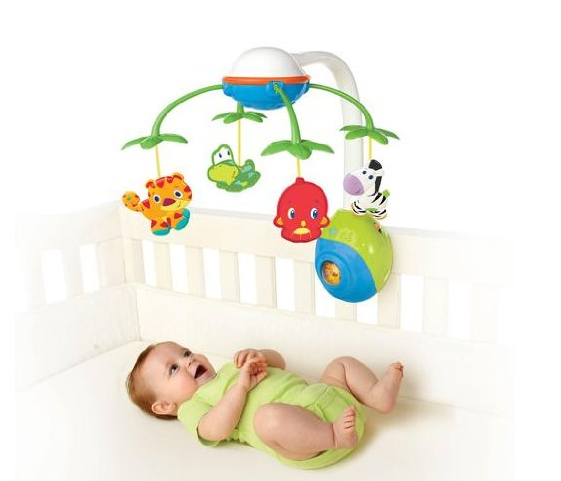 It’s important to give your baby some practice time in her crib during the day. I typically don’t recommend toys or mobiles in the crib at bedtime because they usually overstimulate and keep a baby awake. But during the early crib transition phase, mobiles are usually a great distraction and you can always take them down before bedtime. Practice crib time should be done when your baby is happy and awake, like after a good feeding. Lay your baby down and just let her explore. The more practice she gets in her crib the better she will feel about being in there, and you never know when she may surprise you and actually fall asleep in there.
It’s important to give your baby some practice time in her crib during the day. I typically don’t recommend toys or mobiles in the crib at bedtime because they usually overstimulate and keep a baby awake. But during the early crib transition phase, mobiles are usually a great distraction and you can always take them down before bedtime. Practice crib time should be done when your baby is happy and awake, like after a good feeding. Lay your baby down and just let her explore. The more practice she gets in her crib the better she will feel about being in there, and you never know when she may surprise you and actually fall asleep in there.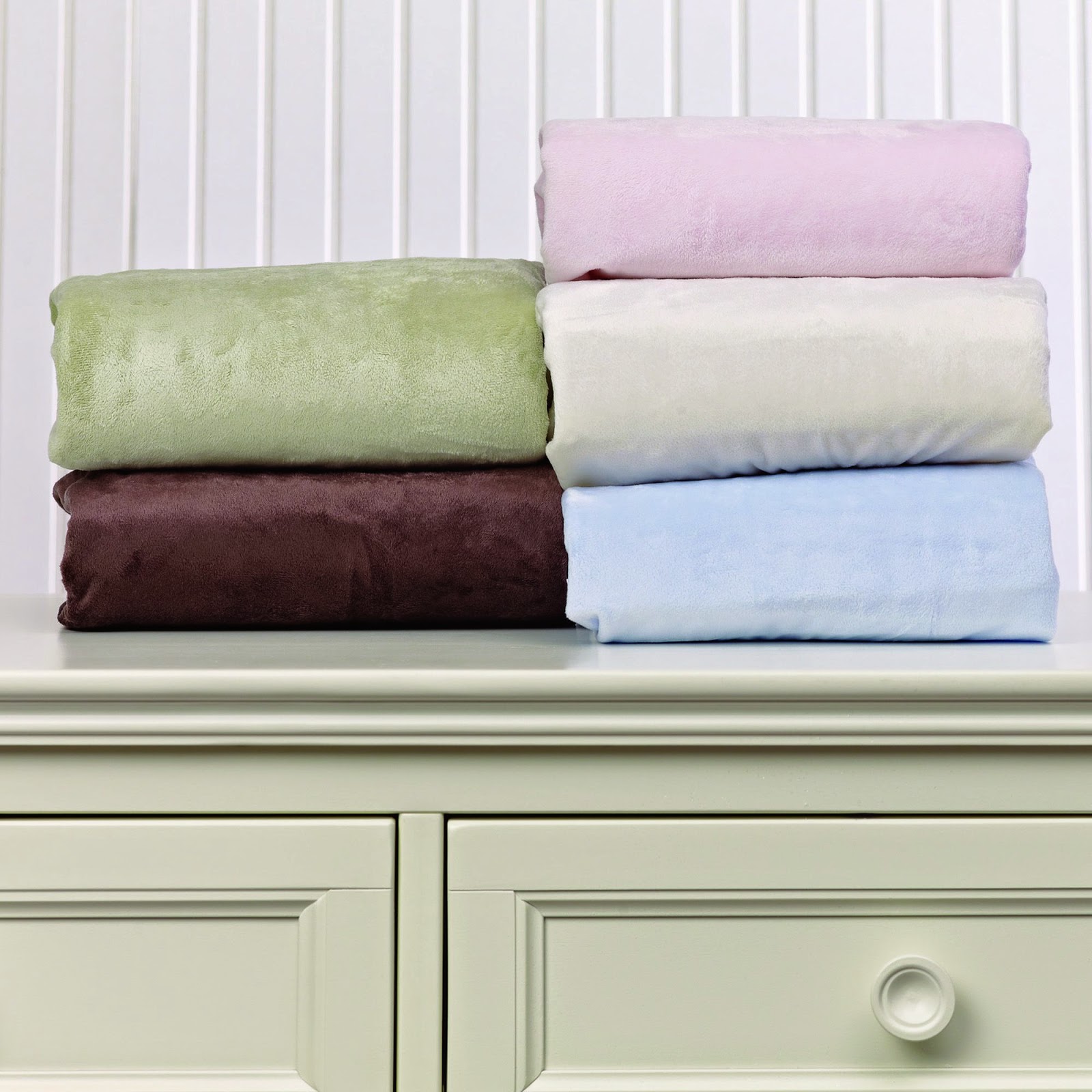 Believe it or not some babies can be really picky about their crib sheets. And did you know that some crib sheets actually encourage self soothing? I have watched so many babies use the texture of the crib sheet to help get themselves to sleep completely on their own. The American Baby Company Velour Sheets are amazing. The texture is so smooth, soft, and your baby’s hand will literally glide across. They should make these for adults!
Believe it or not some babies can be really picky about their crib sheets. And did you know that some crib sheets actually encourage self soothing? I have watched so many babies use the texture of the crib sheet to help get themselves to sleep completely on their own. The American Baby Company Velour Sheets are amazing. The texture is so smooth, soft, and your baby’s hand will literally glide across. They should make these for adults!The right temperature is also very important. If your baby is waking up with cold feet and hands, that may be waking her up during the night or very early in the morning when the temperature drops. Since everyone’s thermostat can be very different, I don’t recommend setting it at a certain temperature. 74 degrees in one person’s home may be cold, while it’s sweating hot in someone else’s. So the rule of thumb is that you put one extra layer of clothing on your baby, than what you are wearing. So if you are warm and cozy in long sleeve pj’s and a blanket, then put your baby in a long sleeve onsie, long sleeve pj, and a wearable blanket and that should keep your baby nice and warm through the night.
Parents with a poor sleeper often report that their baby hates the crib. But it’s often unclear whether an infant actually hates his crib or simply doesn’t want to go to sleep on his own. For some babies, being put to bed in a crib means a change in how they fall asleep. For example, if a baby usually falls asleep while being rocked or nursed, being put down in a crib means he can’t be rocked or fed. That’s the source of the upset.
We can work on crib transition, teaching your baby to self settle, and finally getting your baby to sleep through the night. View Sleep Plans Here–>

